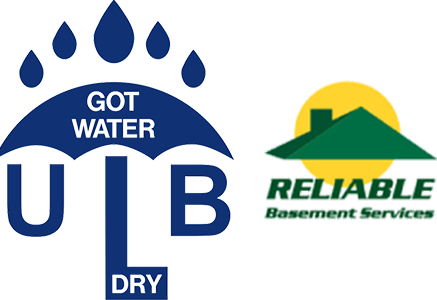A good basement waterproofing plan shouldn’t just rely on one technology or solution, but several to ensure that your property is as safe as can be. However, when it comes to keeping your basement dry in working with your home’s drain tile system, there’s arguably no more important piece of equipment than a sump pump. This post will take a closer look at sump pumps, what they do and what you need to know in order to keep them in working good condition.
What They Do (And Why They’re Important)
Drain tiles exist under the basement floor and work to take water toward a sump basin. Once the water level reaches a certain point in this basin, then the sump pump activates, dispersing water either to a sewer or through a connected pipe to a safe area outside of the home. During strong storms and periods of heavy rainfall, sump pumps can be a huge asset for any basement in terms of keeping it dry.
The vast majority of sump pumps these days are submersible pumps, which consist of the pump motor being located within the sump basin, essentially underneath the basement floor.
How do you know if a sump pump is right for your basement leak repair Lombard? They’re ideal in situations where basement flooding is frequent. They’re also ideal for homes where the water table is greater than the home’s foundation, making flooding more probable.
Maintenance Tips
Sump pumps only have a lifespan of about 10 years, so it’s important to keep them in good working order. The best way to accomplish this is to have them annually inspected by a contractor or specialist to ensure it’s still working as it should. Some common sump pump issues are a clogged drain tube, an issue with the positioning of the switch or an electrical issue. Regardless of any issues – or lack of issues – this type of preventative maintenance sure beats finding out that there’s an issue with the pump than coming home to a flooded basement.
Some other things you should know about sump pumps include:
- Battery backup: Primary sump pumps are powered by electricity. While this is fine, in heavy storms it’s not unusual for homes to lose power, which could put your basement at risk of flooding without an integrated battery backup system.
- Backup pumps: Backup pumps, or secondary pumps, are ideal for homes or businesses that either have large basements or lower levels, or for situations where the primary pump is often seemingly overworked during heavy rainfall. These pumps can kick in to help remove water and take some of the workload off of the primary pump.
For more information on the importance of sump pumps, contact ULB Dry Waterproofing today. Utilizing our vast experience and team of professionals, we specialize in sump pump installation, repair and replacement. Our Chicago-based company serves all of the Chicagoland area, including the likes of Oak Brook, Park Ridge and Naperville. Contact us today for more information.





